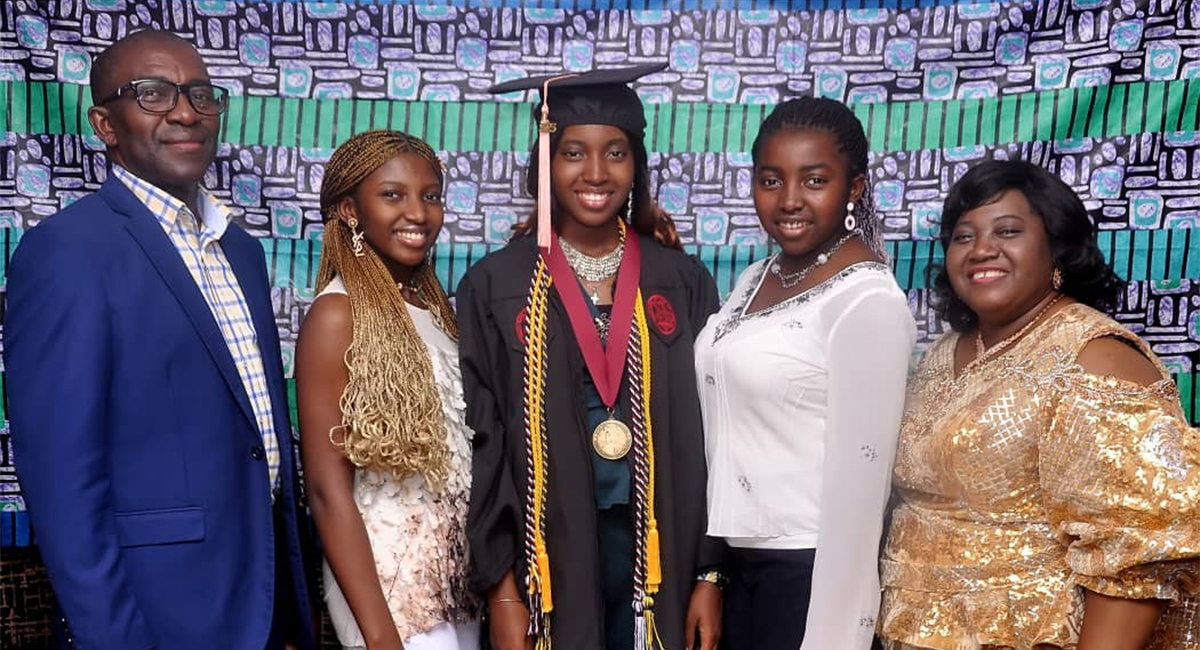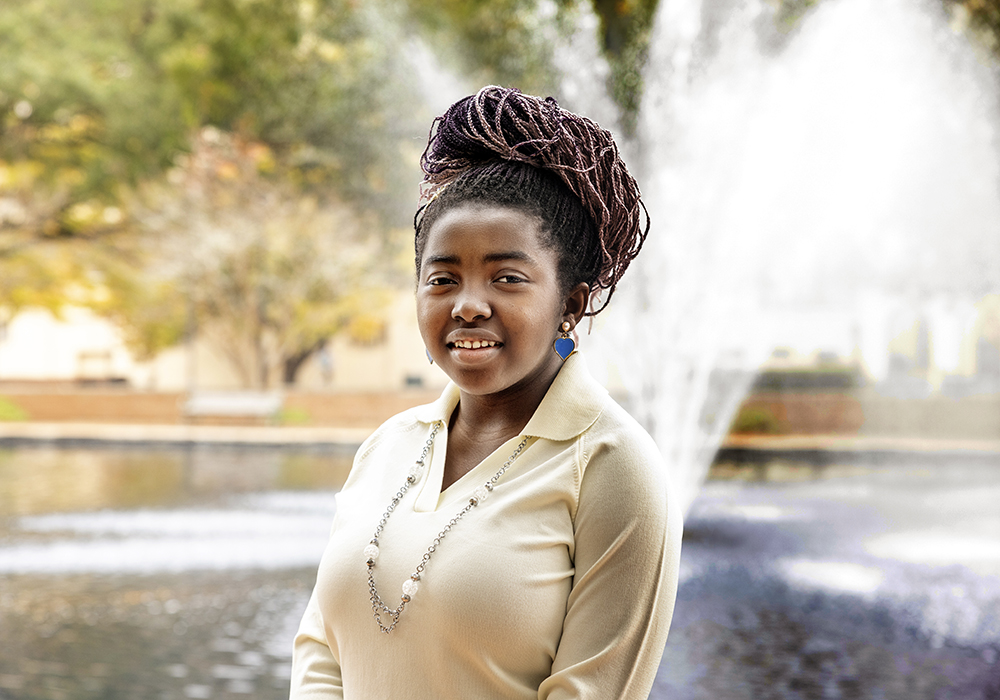Korebami Adebajo Oyinkansola is by every measure an exceptional student.
On track to earn her bachelor’s degree this spring from USC’s Molinaroli College of Engineering and Computing, she’ll be graduating with leadership distinction. Her resume includes two undergraduate research projects, a Capstone Fellowship and a summer internship at the Massachusetts Institute of Technology. She’s currently applying to doctoral programs.
And she just turned 18.
Adebajo, who goes by Kore, entered USC at age 15 as an international student from Lagos, Nigeria. Students in Nigeria generally graduate from secondary education at 16 or 17, and Adebajo and her sisters got an even earlier start.
The result was that all three Adebajo sisters started college at 15 or 16. And all three chose to study at USC, with Kore’s older sister, Kamikun, having graduated in 2023 and younger sister, Murewa, joining the class of 2028. In addition to sharing campus with her sisters, Adebajo also has an aunt and uncle who live in Columbia.
“For my parents, it was important having family in town, because when I came into college, I was really young,” she says. “But ultimately, it was a blend of things that made me decide to go here: I would have a support system, and USC was a really good school for research, which I was interested in for my career.”
International students have different perspectives, and we use the experiences from our various backgrounds to inform how we do things and to recognize how things affect other people.
While Adebajo’s age compared with the typical student’s is certainly notable, what truly sets her apart is her drive to achieve her goals. Adebajo decided early on that she wants to use mathematics and science to contribute to a more sustainable future.
“I was looking for a career that would have a greater chance of impacting sustainability, and that was part of the reason I chose mechanical engineering,” she says.
Adebajo’s research at USC addresses environmental issues ranging from compacting cardboard to developing batteries to power commercial airplanes. With her advisor, associate professor Austin Downey, Adebajo has also been working on self-navigating drones to deliver sensors to locations like rivers and lakes, where they can gather data that would otherwise be inaccessible.
Adebajo says this research will lay the groundwork for her proposed graduate work on swarm robotics.
“Think of the way bees work as a group: I’ll be working on controlling robots in a similar sense and using them for exploratory research on climate change,” she says.
Adebajo aims to develop autonomous robotic systems that will help scientists monitor changes that occur in extreme climates and remote locations.
“I'm thinking places like glaciers or the ocean floor,” she says.
Adebajo points out that conversations about climate change usually focus on the readily visible impacts to the world, such as rising sea level and disastrous weather, “but a lot of climate change affects how all of the earth reacts in ways that we can't see.”
Her older sister, Kamikun, was the person who first opened her eyes to the sustainability issues that largely go unnoticed.
“As a teenager, my sister Kami started a nonprofit organization to raise awareness about climate change in Nigeria,” Adebajo says. “She used to practice her presentations on us, her family, and that was how I began to understand how much of a footprint we leave.”

Kore Adebajo helped to support the nonprofit, called The Evergreen Project, and the experience helped her learn more about the extent of the climate crisis.
“One of the most shocking things I learned is that the communities hit the hardest often don’t know how to tackle the problem or they don’t even know about it,” she says.
For example, the western coast of Africa is a place where ocean currents meet. The result is that huge amounts of trash dumped into the ocean flow to the shores of communities that are not responsible for creating all of the trash.
“I thought, ‘OK. I regularly see these communities, and I know about it now. So, let's look at how we can change the narrative,’” she says.
To do that, Adebajo plans to continue her education and research wherever she can make the most impact, even if that means studying and working away from Nigeria long term.
“I will most likely go wherever the research takes me,” she says.
While being an international college student at a young age has had its challenges, from finding employment and housing to getting her first driver’s license, Adebajo says friends and family in the area have helped her navigate life at USC.
“Sometimes the only people I could easily relate to were other international students because we were facing the same challenges,” she says. “International students have different perspectives, and we use the experiences from our various backgrounds to inform how we do things and to recognize how things affect other people.”
Adebajo says her perspective has been an asset to her research, something she realized during MIT’s Summer Research Program in 2024.
“That was where it really paid off. As an international student, I asked myself, ‘What is it about where I came from that has inspired what I want to do? And how can that experience shape how I use this knowledge and research?’”
